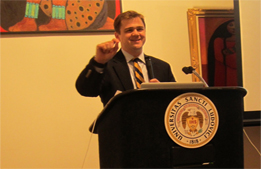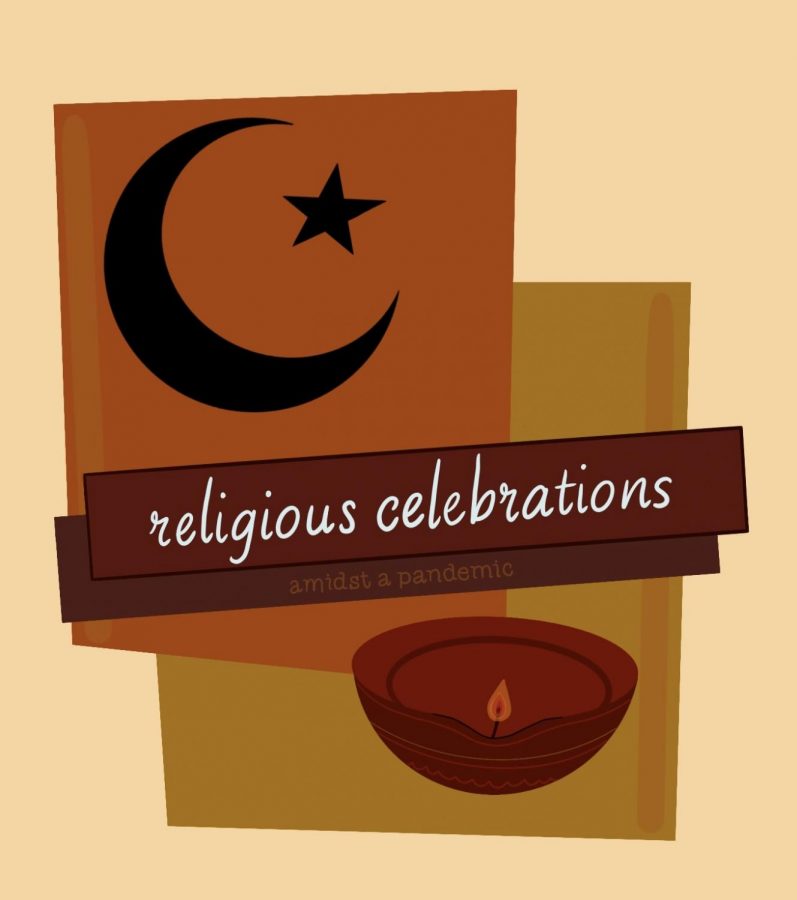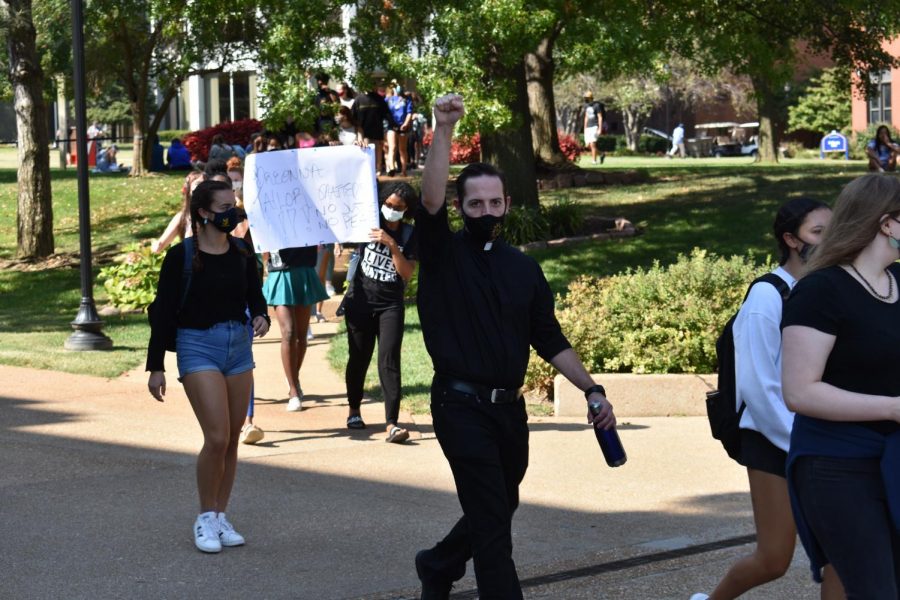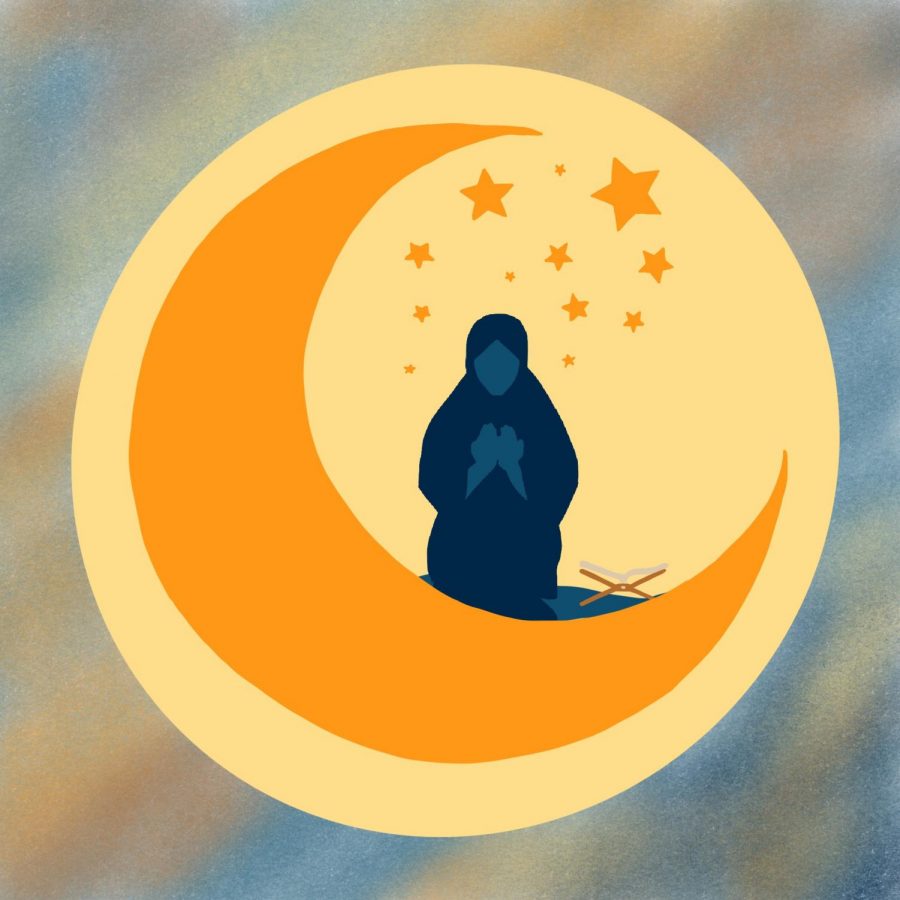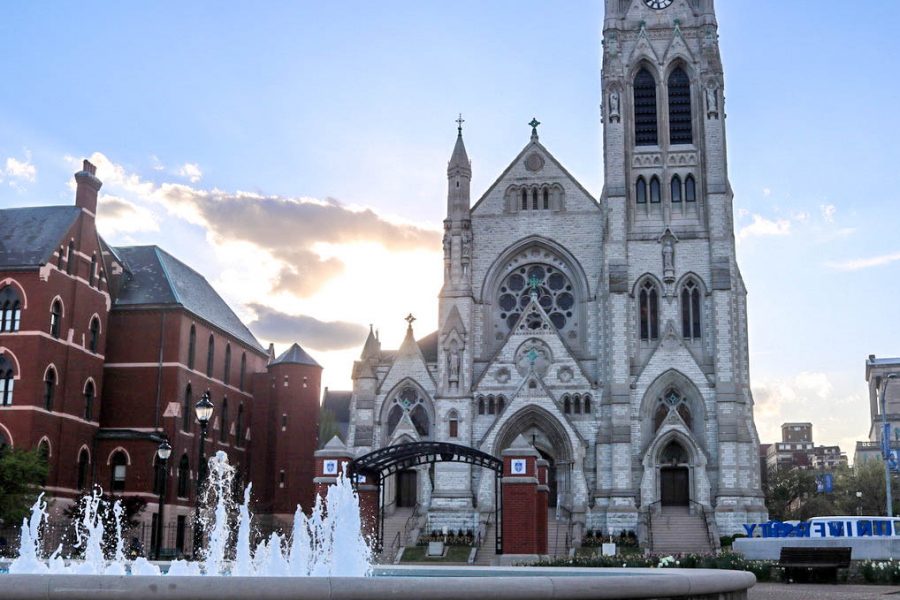Speaker focuses on religion and social discourse
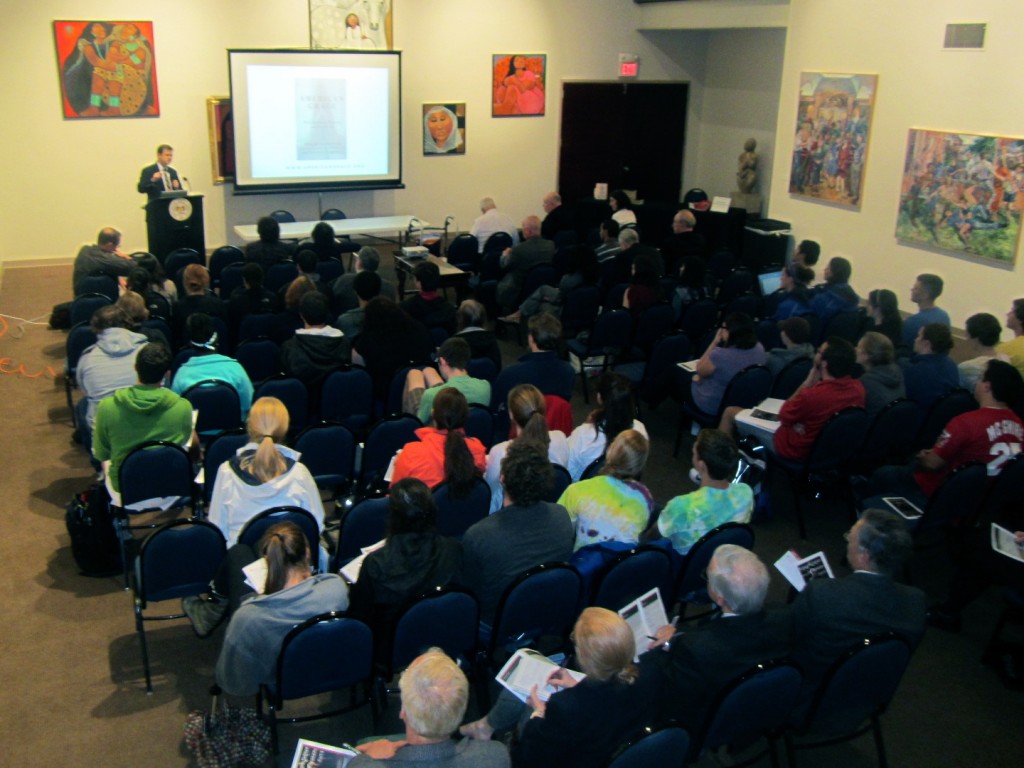
Special guest Dr. David Campbell addresses students and faculty during a symposuim on politics and religion.
Last Wednesday, Oct. 17, the Religion and Politics Symposium was held here at Saint Louis University in Boileau Hall.
The Symposium, featuring key speaker David Campbell, primarily focused on the role of religion in social discourse and the way in which it influences social action and civic engagement. It also described the intertwining of religion with political views.
Campbell is author of “American Grace: How Religion Divides and Unites Us.” He is an expert on religion, politics and civic engagement and has been featured in The New York Times, Washington Post, CSPAN, NPR and other media. Campell teaches at Notre Dame. He has been asked to sit in on many discussions concerning American politics and religion.
An invocation was given by Sara Rahim at the start of the symposium, on behalf of Interfaith Alliance, a SLU student organization.
“Our purpose this evening is to find the intersection of our religious identities and our civic responsibilities, and to ponder the role of faith in political discourse,” Rahim said.
SLU Professor Richard Quirk followed the invocation with an introduction. Quirk said he believed that there has been a change, throughout the course of his life in how religion, politics and civic engagement have interacted. Quirk said he remembered a time when social issues, such as abortion and gay rights, did not enter the political sphere.
“To engage in civic community is to re-imagine your faith, and to re-imagine faith is to lift up the community…and to do so is to value wisdom,” said Quirk.
Afterward, Campbell presented his research. He first commented on “the puzzle,” which he described as a three-part question. How can America be religiously devout, religiously diverse and religiously tolerant?
Campbell illustrated that most Americans get along pretty well with people of other religions. Not only that, but America is a religiously diverse nation, with 30 percent identifying themselves as Evangelical Protestants, 25 percent as Catholics and 20 percent as “nones”(people who don’t identify with any religion). The 25 percent included religions such as Judaism, Islam, Mormonism and so on.
Using survey research, Campbell indicated that the number of “nones” had risen greatly in the past decade, going from 5.7 percent to 20 percent in early 2000. One in three people under age 30 said that they had no religion. Campbell said that people in college have the highest rate of “nones”.
“When asked: ‘even if they aren’t Christian?’ the chart only changed slightly,” said Campbell, showing charts to support his further analysis. “Americans overwhelmingly believe that good people of other religions can go to heaven.”
“It is socially significant why Americans can get along with those of other faiths because everyone knows someone of another religion who, they would consider ‘good and moral’ enough to go to heaven,” Campbell continued. “This socially shared belief is what allows religion to unite us.”
Moreover, he said religion is now very divisive politically speaking. He said that religion wasn’t always associated with one political party, or any for that matter.
“Religion has been declining since the growth of ‘nones’, and the reason for them [nones] was… the mingling of religion and politics in the conservative party, the religious Right,” said Campbell.
As religion and politics became more and more intertwined and associated with the conservative party, those who did not endorse the religious right’s views also grew, and so did their disenchantment with religion.
That people’s politics was driving their religion and their reaction to religion. This resulted when social and cultural issues were injected into politics.
“How frequently you attended church during the Eisenhower era, had nothing to do with whether or not you were a conservative.” Campbell said, “The same can’t be said today…Today, we see religion tied up with partisanship, which contributes to the reason why so many ‘nones’ exist.”
Campbell said that change can only occur when politics and religion quit intermingling.
“The current situation will only change,” he said, “when religious leaders stop talking about politics, and political leaders stop talking about social issues.”
It’s difficult to imagine a time when religion wasn’t so divisive, but apparently that was the case. Reintroducing that attitude may bridge the gap between religious people and those who are “nones.”




